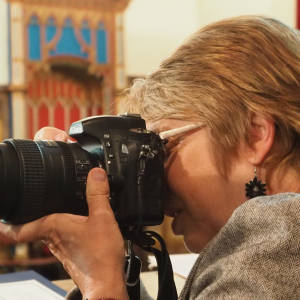The Monster in the Woods
I came across this bit of stone in our school woods - not sure what it was originally though. Squinting at it and crouching low I thought it could just about fit the Shakespeare Challenge as 'the green-eyed monster' quoted in Othello.
Othello
The Tragedy of Othello, the Moor of Venice is thought to have been written around1603; it is based on an Italian short story first published in 1565.
The whole play is about jealousy and deception. One famous quote spoken by the treacherous Iago within Othello is ‘But I will wear my heart upon my sleeve..’ meaning he will feign openness and vulnerability in order to appear faithful. This phrase may derive from the custom at middle ages jousting matches where nights were said to have worn the colours of the lady they were supporting, in cloths or ribbons tied to their arms. The term doesn't date from that period though and is first recorded by Shakespeare in ‘Othello’.
Another well-known phrase is also found in ‘Othello’ where Emilia compares jealousy to a monster, claiming that jealousy is spawned by itself. According to Emilia, events do not cause jealousy; jealousy causes events and further jealousy – interesting thought!
O, beware, my lord of jealousy;
It is the green-ey'd monster which doth mock
The meat it feeds on." (Act III, Scene 3).
Iago is one of Shakespeare's many characters who gives sound advice, yet goes against it. He goads Othello to jealousy but is himself jealous and resentful of the success of others. Calling jealousy a "green-eyed monster" is a metaphor full of imagery. Picture a green-eyed monster gnawing your spleen as it calls you names - that's jealousy.
But jealous souls will not be answered so;
They are not ever jealous for the cause,
But jealous for they are jealous: 'tis a monster
Begot upon itself, born on itself

Comments
Sign in or get an account to comment.


